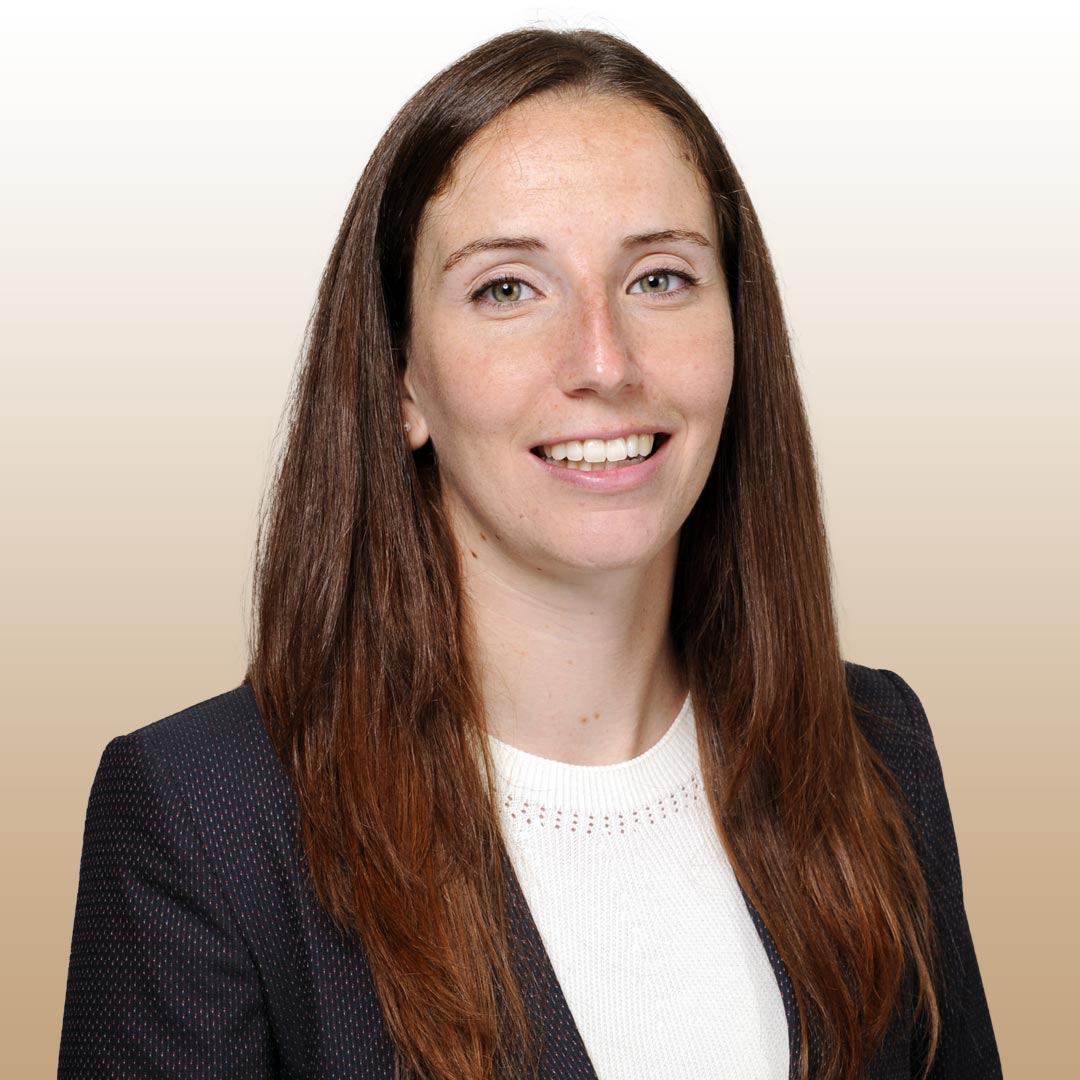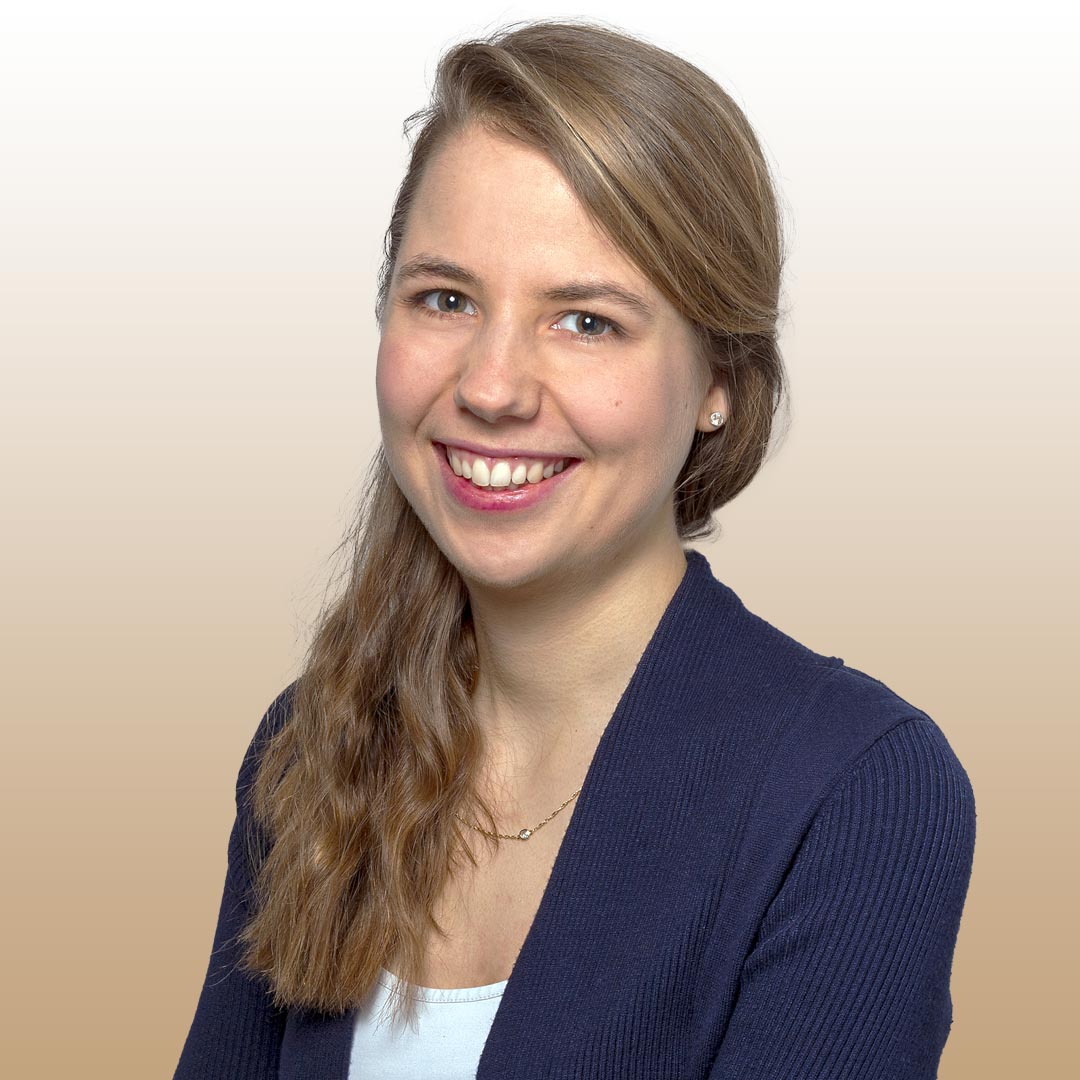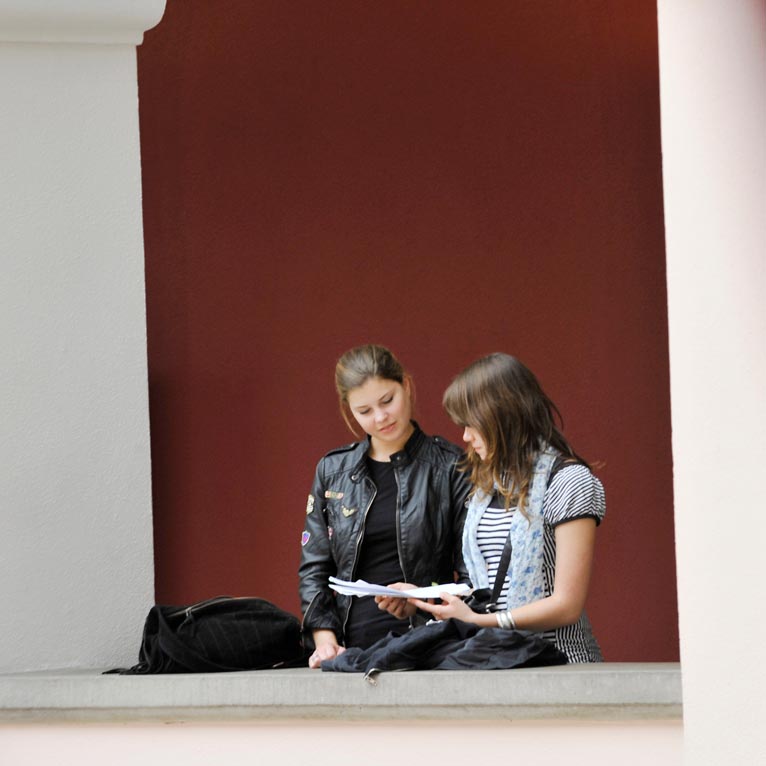Jump directly to
Claudia Gentile and Lexi Schubert
With Claudia Gentile and Lexi Schubert the UBS Center has two new scholarship holders – both young talented women, who are devoting their dissertations to important economic issues: environmental policies and the psychological aspects of poverty. In this interview, the two talk about their passion for economics and the advantages of a research semester abroad.
UBS Center: There are many places where you can study economics. Why did you choose the Department of Economics at the University of Zurich for your PhD?
Claudia Gentile: I received offers from several PhD programs at the end of my master. I chose the University of Zurich for my PhD because of the quality of the PhD Program and the research expertise of the Department’s faculty. I was particularly interested in the research topics my PhD advisors, Professors David Hémous and Florian Scheuer, work on. The visiting days organized by the Department for prospective PhD students also allowed me to appreciate the positive, stimulating, and collaborative research environment at the Department of Economics, which further convinced me this was the right place for my PhD.
What are you most fascinated by when it comes to economic topics?
Claudia: Most economic topics are concerned with improving welfare. I have always been fascinated by the diversity of aspects to consider when studying how to improve welfare. For example, environmental economics studies how to limit the expected severe negative effects of climate change on welfare. This encompasses analyzing a wide range of issues, which goes from studying the market failures that prevent correct pricing of environmental externalities, to analyzing environmental policies and their political feasibility, up to building on climate models in order to study how the climate and the economy jointly evolve in response to policies.
Lexi Schubert: Economics often gets a bad rep as being only about profit maximization or being the dismal science because we acknowledge scarcity and constraints. But if you combine both of those aspects in the right way, you get something really cool: how can we use what we know about decision-making to allocate scarce resources in a way that maximizes utility (aka happiness)? I try to tackle these kinds of questions by studying the “psychology of poverty”, which lies in the intersection of behavioral and development economics. In my projects, I investigate the role of “invisible” biopsychological factors such as chronic pain or mental health in economic decision-making. This is linked to poverty by either studying income-related decisions (like saving for retirement or investments in education) or studying low-income individuals directly. Examples of biopsychological factors include chronic pain, mental illnesses, or brain architectures that lead to innate biases. At the same time, it is of course also plausible economic conditions themselves – like poverty or technological change – affect physical and mental well-being and thereby our ability to make good economic decisions. Understanding these causal chains and intricate feedback loops is crucial to improving welfare.
Lexi, you wrote a paper on the benefit of a basic retirement savings program? What was your driver for writing the paper and what are the key takeaways?
Lexi: My co-authors and I started working on this project a while ago when we were all still living in the US. It was borne out of two concrete observations: First, we were startled by this stylized fact that a quarter of all Americans aged 55 and older had NO retirement savings at all. Second, there is a huge difference in the types of retirement programs that are predominant in the United States vs. European countries. We wanted to understand the implications of an assisted savings program (akin to “Säule 1–3” in Switzerland) where individuals are “forced” to save at least some of their income relative to a private savings program where individuals can freely decide how much to consume or save with all of their income (imagine a world with only “Säule 3” in Switzerland). To abstract away from any confounders that would exist in observational data (such as different cultures or income levels), we set out to answer this question with a lab experiment.
In our miniature lab economy, we find that individuals on assisted savings programs indeed fare better than those who have to save privately. Individuals that receive support are able to better smooth consumption across their lab lifetime. We are able to link the suboptimal consumption behavior to “compound interest bias,” which means that individuals underestimate how much savings will grow thanks to compound interest – even when only tiny amounts are saved at the beginning.
Claudia, you are currently in the US for a research semester abroad. What are you currently working on and are you collaborating with researchers at Yale University?
Claudia: I am working on my main research project which studies clean growth and optimal environmental policies to foster the transition towards clean energy technologies. My research project has particularly benefited from ample discussions with my host professors at Yale, Michael Peters and Fabrizio Zilibotti, and with other Faculty and PhD students that work on related topics. Furthermore, I have particularly benefited from participating in research seminars and courses both at the Yale Economics Department and at the Yale School of the Environment.
Where can you benefit from valuable overlaps between Yale and Zurich?
Claudia: There are close contacts between some of the Faculty at the University of Zurich and some of the Faculty at the University of Yale, which creates a connected research environment that can benefit PhD students. There are excellent professors working on clean growth and environmental topics both at the University of Zurich and at Yale University, which makes it a perfect overlap for PhD students who want to work on such topics.
Lexi, you’ll be going abroad next year. What are the benefits of spending a semester abroad and what are you looking forward to?
Lexi: I am very excited to visit MIT’s Department of Economics next year. My research interests align closely with the topics studied by their development group, and they are known for having pioneered the randomized control trials and field experiments – tools I plan to use in own my research. My MIT host professor Frank Schilbach, in particular, has done groundbreaking work in the field of psychology of poverty. He marries psychology and economics in lab-in-the-field experiments in India studying relevant topics like alcohol, sleep, or loneliness. Being able to receive feedback from him will be very beneficial to shaping my current projects. Additionally, one of my co-authors (on a project that was borne out of a recent summer school) is a graduate student at MIT. Not having to work around time differences or having to put up zoom whiteboards will make collaborating much easier!
Overall, I am very much looking forward to immersing myself in the research culture there, attending seminars and conferences and engaging with fellow graduate students to build my international network.
Claudia: I agree. In my opinion, the main benefit of doing a research semester abroad is getting in contact with a larger network of researchers, with whom I can exchange ideas, collaborate, and provide feedback on each other’s work. Meeting and discussing ideas and research projects with a large network of people is a crucial ingredient for progress in research. In addition, thanks to the increased use of technologies that allow working remotely I was also able to keep participating in research group meetings and one-to-one meetings with the faculty and other PhD students in Zurich, thus reaping the benefits of both worlds.
You are already advanced in your doctoral studies. What does the UBS Center Scholarship mean to you?
Lexi: The UBS Center scholarships enables me to dedicate more of my time to research. I am particularly grateful for the research budget because it allows me to explore and pilot small risky ideas without needing to find funding for a fully-fledged pilot (which is usually is complicated undertaking). Besides satisfying academic curiosity, these insights gained from mini-pilots help with honing the research question and can inform better designs for a more serious pilot. This type of exploratory qualitative work has proven to be so useful that I am even re-purposing the tuition reimbursement (that was also part of the scholarship) for additional qualitative data collection in one of my projects.
Claudia: First of all, it provides me with some funding that I can use to buy data for my research projects. Secondly, it reduces my teaching load for the next year, which will allow me to devote more time to research and be better prepared for the Academic Job Market next year. Finally, I think that being affiliated with the UBS Center will allow me to get in contact with more researchers and closely take part in the UBS Center’s activities.
With Claudia Gentile and Lexi Schubert the UBS Center has two new scholarship holders – both young talented women, who are devoting their dissertations to important economic issues: environmental policies and the psychological aspects of poverty. In this interview, the two talk about their passion for economics and the advantages of a research semester abroad.
UBS Center: There are many places where you can study economics. Why did you choose the Department of Economics at the University of Zurich for your PhD?
Claudia Gentile: I received offers from several PhD programs at the end of my master. I chose the University of Zurich for my PhD because of the quality of the PhD Program and the research expertise of the Department’s faculty. I was particularly interested in the research topics my PhD advisors, Professors David Hémous and Florian Scheuer, work on. The visiting days organized by the Department for prospective PhD students also allowed me to appreciate the positive, stimulating, and collaborative research environment at the Department of Economics, which further convinced me this was the right place for my PhD.


Awarding top academic talents
The UBS Center is a main funding body for top academic talent at the Zurich University’s Graduate School of Economics.
The UBS Center Scholarships are scholarships awarded every year to outstanding PhD students at the Graduate School of Economics, run by the Department of Economics at the University of Zurich. Furthermore, by funding new endowed chairs at the Department of Economics, the UBS Center will create additional doctoral positions for talented young researchers beyond the scholarship scheme. This will ensure that the Zurich Graduate School of Economics achieves a critical mass of top young talent to create a leading international graduate school with an attractive research environment. By strengthening the University of Zurich’s position as a destination for young academic talent around the world, the UBS Center also aims to further enhance Switzerland’s position as a top location for education and business more generally. After all, investment in higher education and research is a key factor in preserving and further growing economic prosperity in developed economies over the long term.
The UBS Center is a main funding body for top academic talent at the Zurich University’s Graduate School of Economics.
The UBS Center Scholarships are scholarships awarded every year to outstanding PhD students at the Graduate School of Economics, run by the Department of Economics at the University of Zurich. Furthermore, by funding new endowed chairs at the Department of Economics, the UBS Center will create additional doctoral positions for talented young researchers beyond the scholarship scheme. This will ensure that the Zurich Graduate School of Economics achieves a critical mass of top young talent to create a leading international graduate school with an attractive research environment. By strengthening the University of Zurich’s position as a destination for young academic talent around the world, the UBS Center also aims to further enhance Switzerland’s position as a top location for education and business more generally. After all, investment in higher education and research is a key factor in preserving and further growing economic prosperity in developed economies over the long term.
